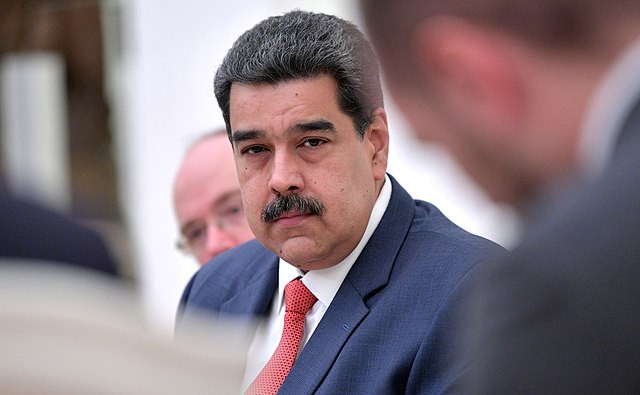The United States has seized a Dassault Falcon 900EX aircraft, once used by Venezuelan President Nicolás Maduro. The plane, valued at $13 million and described as Venezuela's equivalent of Air Force One, was apprehended in the Dominican Republic and flown to Florida on Monday. The seizure underscores the intensifying measures taken by the U.S. to combat what it describes as rampant corruption and violations of international norms by the Maduro regime.
The plane's capture marks a significant development in U.S.-Venezuelan relations, which have been fraught with tension for years. According to sources, the aircraft was purchased from a Florida-based company and smuggled out of the U.S. in April 2023, in direct violation of U.S. export control and sanctions laws. This operation was allegedly facilitated by a Caribbean-based shell company, which concealed the true ownership and use of the aircraft. The U.S. Department of Justice (DOJ) has described the transaction as a deliberate evasion of sanctions, aimed at undermining U.S. efforts to curtail illicit activities linked to the Venezuelan government.
"This seizure sends a message all the way up to the top," one U.S. official told CNN. "Seizing a foreign head of state's plane is unprecedented for criminal matters. We're making it clear that no one is above the law, and no one is beyond the reach of U.S. sanctions." This sentiment was echoed by Matthew Axelrod, Assistant Secretary for Export Enforcement at the Commerce Department, who emphasized that "it doesn't matter how fancy the private jet or how powerful the officials-if aircraft are illegally acquired from the U.S., we will work relentlessly to return them."
The aircraft, which had been flying almost exclusively to and from a military base in Venezuela, was used for Maduro's international travels, raising concerns about its role in supporting a regime subject to extensive U.S. sanctions. The DOJ's statement highlighted that the plane's illicit acquisition involved smuggling operations through the Caribbean, further complicating the legal and diplomatic dimensions of the case.
The seizure comes against the backdrop of broader U.S. efforts to pressure the Venezuelan government. The U.S. has imposed severe sanctions on Venezuela, including those targeting its oil and gas sector, in response to what it views as the regime's failure to conduct a credible and inclusive election. The recent controversial reelection of Maduro, followed by the suspension of commercial flights between Venezuela and the Dominican Republic, has only intensified the scrutiny on the Venezuelan leader.
Attorney General Merrick Garland has reiterated the DOJ's commitment to pursuing violations of U.S. sanctions and export controls. "We will continue to pursue those who violate our sanctions and export controls," Garland stated, emphasizing the DOJ's role in preventing the use of American resources to undermine national security.
The Venezuelan government, which has not yet commented on the seizure, has been a focal point for U.S. law enforcement efforts in recent years. In addition to the aircraft seizure, Homeland Security Investigations (HSI) has disrupted $2 billion worth of the Venezuelan government's illicit proceeds, including the seizure of luxury vehicles and the liquidation of bank accounts.
The implications of this action extend beyond the immediate diplomatic frictions. The U.S. has long sought to disrupt the flow of funds to the Maduro regime, which has been accused of widespread corruption and economic mismanagement. The ongoing economic crisis in Venezuela, characterized by severe shortages of food and basic necessities, has led to the largest displacement crisis in the Western Hemisphere, with over 7.7 million people fleeing the country.
The seizure of Maduro's plane represents a significant, symbolic gesture in the ongoing struggle between the U.S. and the Venezuelan government. As the DOJ and other federal agencies continue their investigations, the outcome of this case could have far-reaching implications for U.S.-Venezuelan relations and the broader efforts to hold the Maduro regime accountable.




